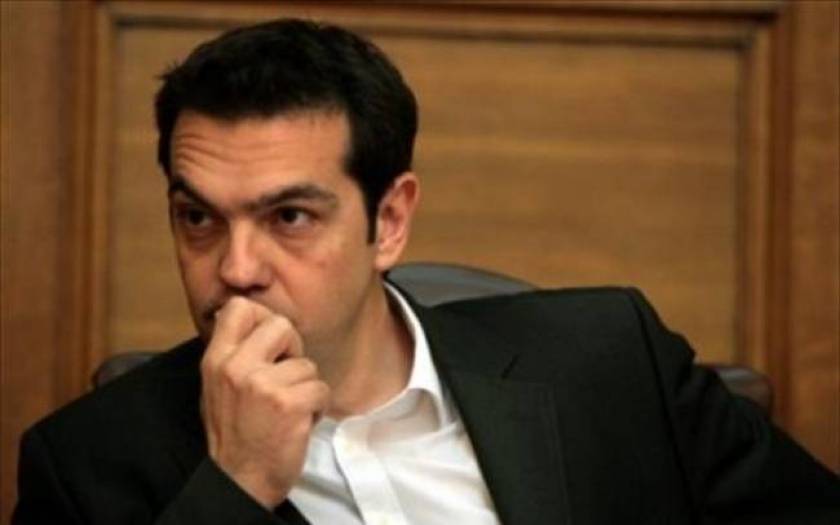Tsipras to "Le Monde": "The debt is unsustainable and threatens Europe's stability"

The need for "a European solution to the debt problem which is unsustainable and threatens the stability of Europe" is emphasized in an interview to the newspaper Le Monde by the president of SYRIZA Alexis Tsipras, who advocated Jean-Claude Juncker for president of the European Commission.
"Greece has a need for a new national strategy in the negotiations because we have a critical negotiation ahead for debt restructuring" he said and to the question of the journalist on why he believes Europe will accept, the SYRIZA president replied: "Because the debt is unsustainable and threatens the stability of all of Europe . This systemic risk led Brussels to deal with the Greek debt in 2010. The threat of a Greek exit from the euro is used as blackmail. Everyone knew that this would explode the eurozone. Greece didn't understand how to use its negotiating capabilities". Asked to comment on the results of the Euro elections and the rise of right-wing parties, he stressed that this is "a negative shock across Europe, especially in France, which is an important economic country and in terms of democracy. "These monstrosities" he added, "are the results of austerity policy that destroys the middle class and the most vulnerable of society, by throwing them into the arms of the neo-Nazis".
At the observation of the author, that according to the Samaras Government, Greece is doing better, returned to the markets and began the path of growth, Tsipras underlined the risks to Europe with a "colonization of the south", and explained: "The ultimate goal of austerity wasn't to get Greece out of the crisis, but to create an internal devaluation and to give a new impetus to competitiveness. Merkel and Schäuble have a strategic plan, which is the Germanization of Europe and the colonization of the south. They want to create a special economic zone in the region of the continent, without the constraints of employment law, with low wages and a high structural unemployment. They believe that in this way the European economy will be competitive. The competitiveness isn't based on the reduction of labor costs, particularly in a globalized economy. Otherwise Bangladesh today would be the most competitive country in the world. It's wrong, because in a Europe divided into south and north, a region on the brink of a humanitarian crisis, is a weakened Europe".
The president of SYRIZA then argued that the German Chancellor "causes Europe's resentment with her austerity policy and with her insistence of depriving Europeans of their elementary democratic rights. If Europe doesn't democratize soon, it will suffer a major cohesion" he said and when asked whether or not he supports the candidacy of Juncker for the president of the European Commission he explained that "although he's a tough opponent of his policy", he recognizes the right to preside, as long as his party won the largest number of seats. "If this doesn't happen, Europe has no future (...) we had an election campaign, there were discussions and now they will tell us that they were all for nothing!" he mentioned. To another question on whether he would stop privatization and public sector reform, if it took power, Tsipras replied: "When one recognizes that a social crime was committed, it isn't enough to apologize and continue the same policy. First we need a European solution to the debt problem. Before the crisis, the public debt was 120% of GDP and today is 180%. This proves that the policy applied was criminal" and added that "focusing on Greece, the countries of the region should implement a broad program of investment, a New Deal, to quickly find the path of growth".
About the possibility of early parliamentary elections, he seemed convinced that if they are done, his party will reach high percentages that will allow them to make "a government of social salvation" around SYRIZA. Tsipras then accused European leaders that they choose Greek politicians who they "could handle", Samaras, Venizelos and Stournaras in economics. Specifically for Stournaras he said: "Now the same leaders want Stournaras to become the governor of the Bank of Greece. It's the choice of Berlin. With this placement, they are trying to short-circuit the negotiating ability of the next government. Schäuble has a strategic plan: to permanently install austerity in Greece for two decades. It's the plan that we want to prevent".













